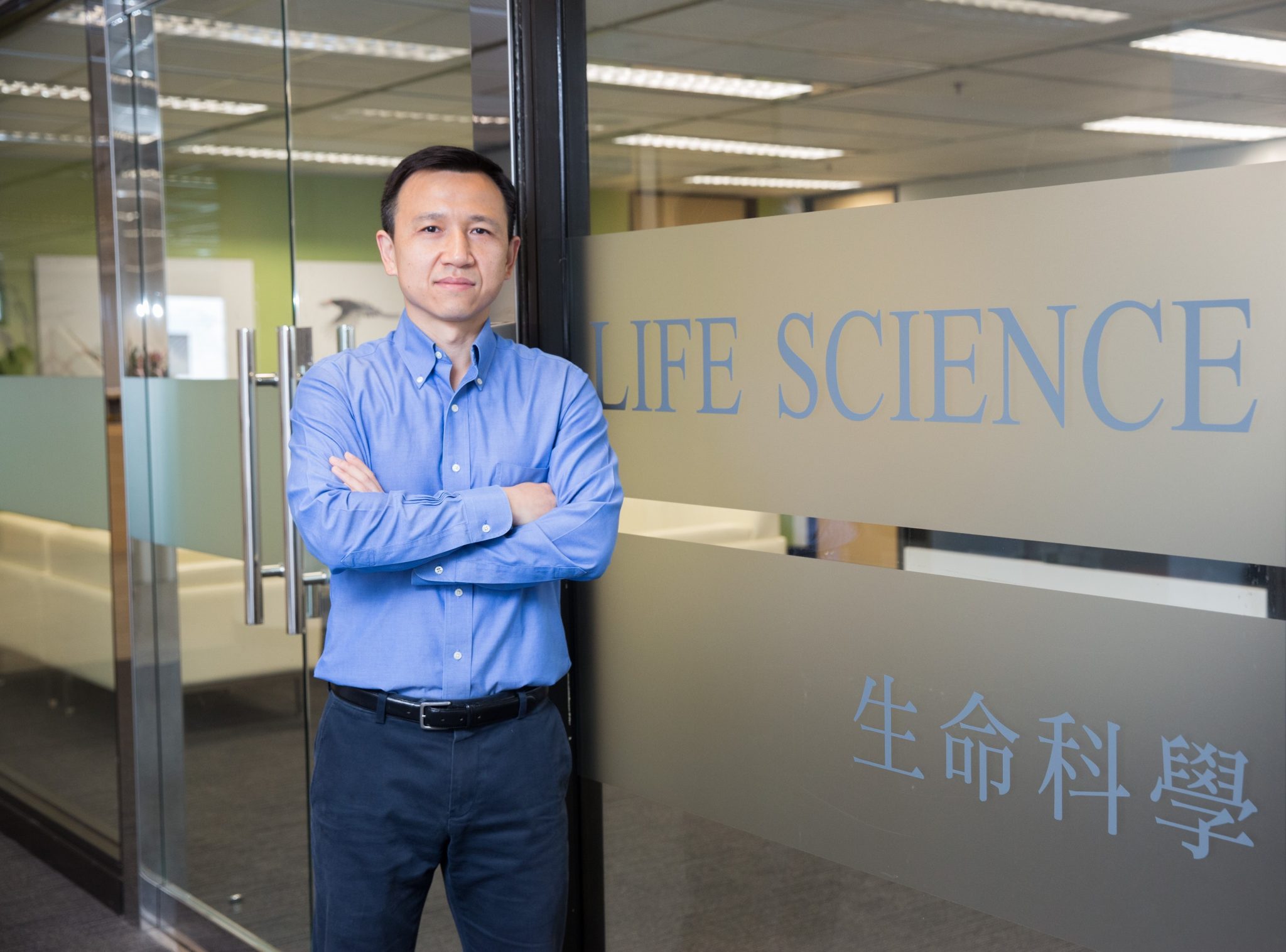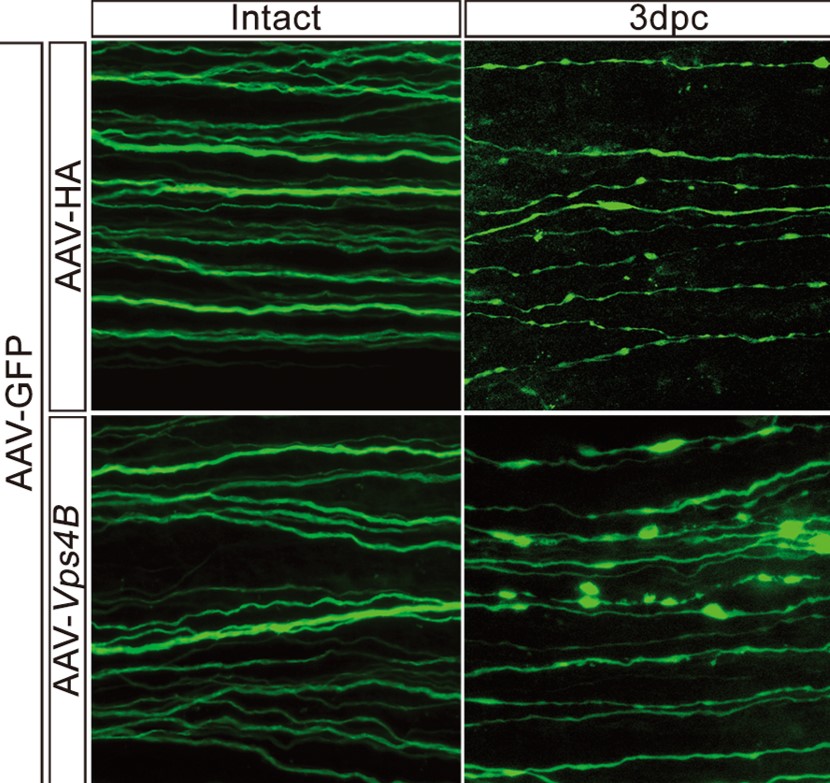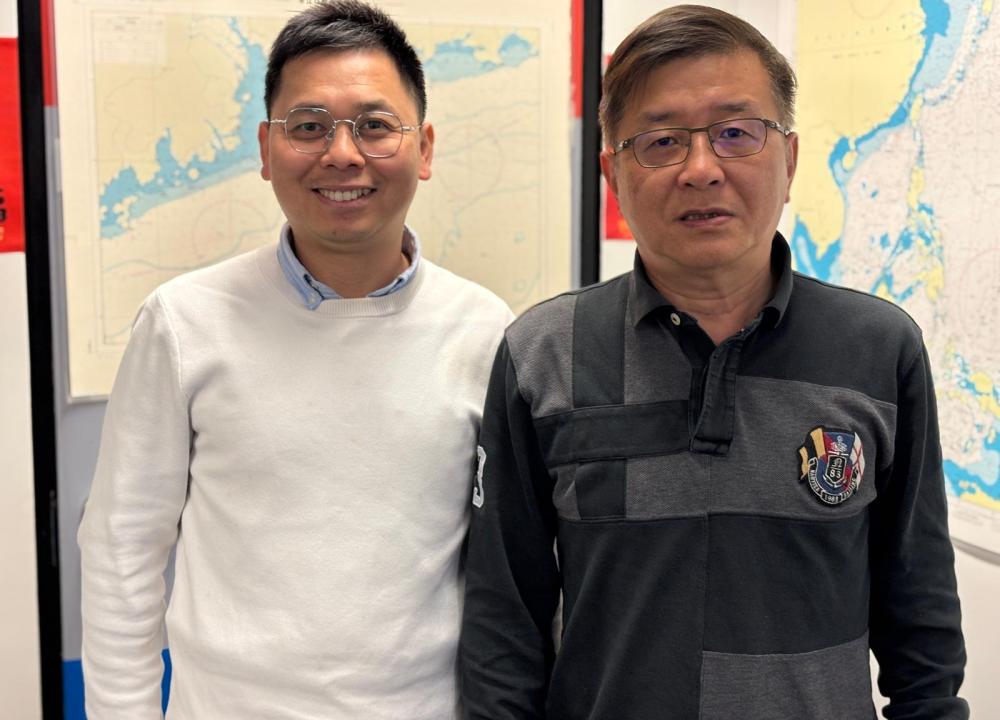HKUST Researchers Co-discover Novel Mechanism That Helps Delay Degradation of Injured Nerves
A research team consisting of scientists from the Hong Kong University of Science and Technology (HKUST), Chinese Academy of Sciences (CAS) and Jinan University discovered a new mechanism that could delay the degeneration of injured nerves, bringing new hope to the treatment of nerve damage and neurodegenerative diseases such as Parkinson and Amyotrophic Lateral Sclerosis (ALS).
Axon is the long projection of a neuron/nerve cell that transmits electrical impulses to muscles and other nerve cells. How nerves, bundles of axons and often meter-long processes of neurons maintain their integrity has been one of the fundamental questions in neuroscience, as failure of axonal integrity may cause axonal dying back or retrograde degeneration of nerves – a process very similar to the injury-induced Wallerian Degeneration. For years, NMNAT-related signaling pathway was the only mechanism known to have deterrent effect against this process.
However, in the latest study co-led by Prof. LIU Kai, Cheng Associate Professor from the Division of Life Science at HKUST, Prof. FANG Yanshan from CAS’ Shanghai Institute of Organic Chemistry and Prof. LI Ang from Guangdong-Hong Kong-Macau Institute of CNS Regeneration at Jinan University, a new gene Vps4 was identified to be effective in delaying the degradation of damaged nerves as well. The finding was published in the scientific journal Science Advances.
Through a genetic screening in fruit flies, and later verification in rodents, the team used both in vitro and in vivo system to demonstrate that overexpressing Vps4 protein could delay the degradation of damaged nerves by up to three days. This discovery marks an important breakthrough in understanding the molecular mechanism that regulates axonal integrity and possibly neurodegeneration.
Different from NMNAT, Vps4 also regulates autophagy – a process that removes damaged proteins and organelles to combat the negative effects of axon injury and neurodegeneration during aging. Depletion of Vps4 may induce autophagic impediment and lead to the subsequent axonal degeneration.
Prof. Liu commented, “In the future studies, suppressing the rapid degradation of Vps4 may be an important direction and is expected to obtain stronger neuroprotective effects. Moreover, a combination of the Vps4 and NMNAT pathways act may also be a new strategy for the treatment of neural injury and degeneration.”
Prof. Liu is a leading expert on axonal regeneration. Benefiting from the Chinese government’s new policy which allows transmission of mainland research funding into Hong Kong, Prof. Liu was able to expand his research area into axonal degeneration, resulting in this cross-institutional collaboration.
About The Hong Kong University of Science and Technology
The Hong Kong University of Science and Technology (HKUST) (www.ust.hk) is a world-class research university that focuses on science, technology and business as well as humanities and social science. HKUST offers an international campus, and a holistic and interdisciplinary pedagogy to nurture well-rounded graduates with global vision, a strong entrepreneurial spirit and innovative thinking. HKUST attained the highest proportion of internationally excellent research work in the Research Assessment Exercise 2014 of Hong Kong’s University Grants Committee, and is ranked as the world’s best young university in Times Higher Education’s Young University Rankings 2018. Its graduates were ranked 16th worldwide and top in Greater China in Global University Employability Survey 2018.
For media enquiries, please contact:
Anita Lam
Tel: 2358 6313
Email: anitalam@ust.hk
Sam Li
Tel: 2358 6317
Email: liyongning@ust.hk












